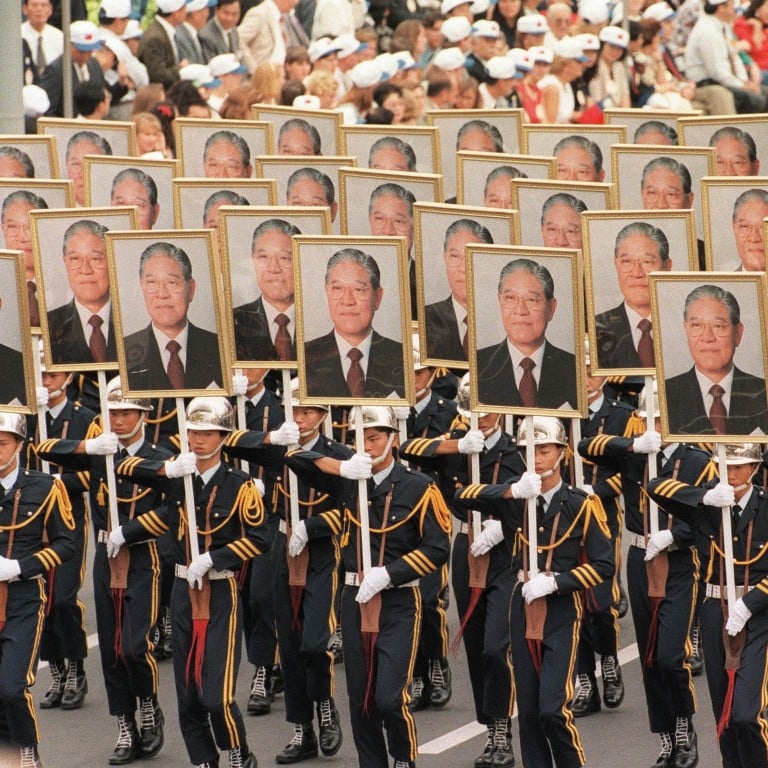
Obituary | Lee Teng-hui, a controversial figure hailed as Taiwan’s ‘father of democracy’
- The island’s first democratically elected president, whose long career spanned the political spectrum, has died aged 97
- Taiwan was still under Japanese rule when Lee was born in a rural community near Taipei in 1923
His efforts to promote Taiwanese identity and Taiwan’s statehood in the last five years of his presidency saw him widely reviled by Beijing, which maintains that Taiwan is part of the mainland and subject to eventual reunification.
He also served as a junior officer in the Imperial Japanese Army late in World War II and remained a vocal defender of Japanese interests, resulting in criticism from Beijing and other Asian governments.
Taiwan’s former leader Lee Teng-hui dies in hospital at 97
But political pundits in Taiwan said that, although he was controversial, nobody could deny Lee’s achievement in promoting democratic reforms in Taiwan, which eventually saw him dubbed “Mr Democracy” and the “Father of Taiwan”.
“As a top strategist, Lee proved to the West that democracy could still be practised in an evolutionary instead of a revolutionary way in Taiwan,” said Wang Kung-yi, a political scientist at Chinese Culture University in Taipei.
Wang said the major democratic reforms initiated by Lee during his 12 years as the island’s leader – including the establishment of direct parliamentary, presidential and municipal elections as well as the promotion of human rights, freedom of expression and a free press – meant he well and truly deserved the title “Mr Democracy”.
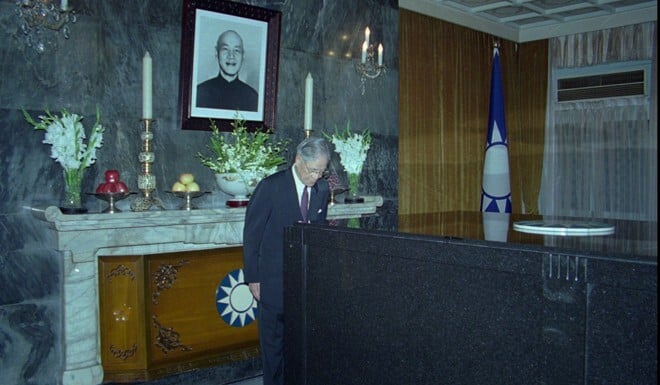
Lee was born into a Hakka family in Sanzhi, a rural community near Taipei, on January 15, 1923. Taiwan was a Japanese colony at the time, and Lee, who went on to become a top high school student, eventually earned a scholarship to study at Kyoto Imperial University in Japan.
Lee returned to Taiwan in 1946 and enrolled at National Taiwan University, earning a bachelor’s degree in agricultural science two years later.
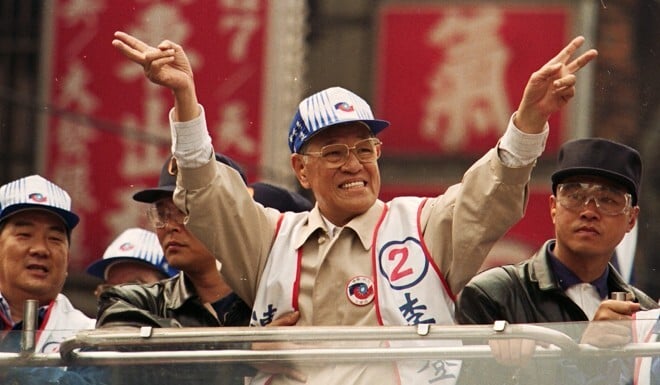
In 1952, he won a scholarship to study at Iowa State University in the United States, receiving a master’s degree in agricultural economics a year later. He returned to Taiwan in 1957 to work as an agricultural economist at the US-sponsored Joint Commission on Rural Reconstruction, and also served as an adjunct professor in economics and East Asian studies at two universities.
In 1964, he won another US scholarship to study for a doctorate in agricultural economics at Cornell University. He returned to work at the commission in Taiwan four years later, after receiving his PhD.
Between 1964 and 1968, he was twice questioned by Taiwan’s security authorities over his earlier Communist Party membership and alleged connections with Taiwanese independence activists while in Japan and the US. In one of his memoirs, Lee said those interrogations, one lasting four months and the other a week, made him determined to get rid of the “bitterness of the White Terror” if he became the island’s leader.
In August 1971, Lee’s boss introduced him to Chiang Ching-kuo, the son of then KMT leader Chiang Kai-shek, as an expert in agricultural economics. Lee joined the KMT two months later.

When Chiang Ching-kuo became head of the island’s cabinet the following year he made Lee minister in charge of agricultural development. In 1978, when Chiang Ching-kuo succeeded his late father as president, he appointed Lee mayor of Taipei. He went on to make Lee Taiwan’s provincial governor in 1981 and vice-president in 1984.
Taiwanese media said Chiang Ching-kuo promoted Lee because he was aware of the need to elevate the political status of native Taiwanese to address their growing frustration over mainland immigrants’ domination of major government offices.
When Chiang Ching-kuo died in January 1988, Lee succeeded him as president, initially adopting a cautious approach when dealing with internal and external affairs.
But political scientists said that, after solidifying his grip on power in 1990, Lee began to promote democratic reforms and started to reshuffle the government and the KMT to bring in more talented native Taiwanese technocrats in an effort to rebalance the administration and diminish the influence of mainland immigrants.
“That’s part of his efforts to promote localisation or Taiwanese identity,” said Hsu Yung-ming, chairman of New Power Party and formerly an associate professor of political science at Soochow University in Taipei.
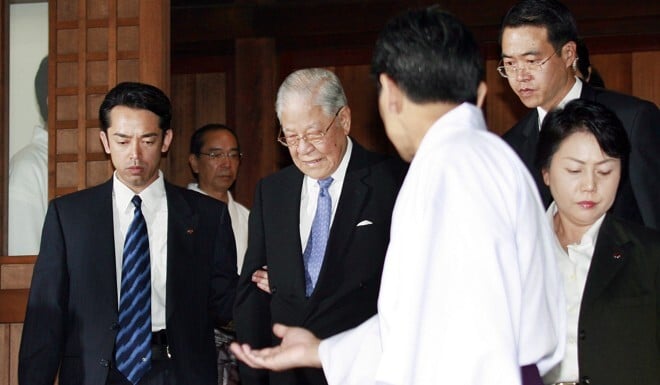
But Hsu said those efforts also made Lee one of the Taiwanese political leaders most reviled by Beijing.
In the early years of Lee’s presidency, his cross-strait policy was marked by a gradual relaxation of restrictions on economic ties and the recognition of the one-China principle with a view to the eventual “reunification of China under democracy”. That was evidenced by his establishment of a National Unification Council in 1991 with a view to drawing a road map for reunion under the name “Republic of China”.
But a high-profile, 1995 visit to his US alma mater, Cornell University, designed to increase Taiwan’s international visibility and promote the island’s sovereign status, angered Beijing, which saw it as a deliberate challenge to its stance that Taiwan was part of the mainland.
The following year, when Taiwan held its first direct presidential election, Beijing staged a series of missile tests and war games near Taiwan to try to intimidate the island’s voters. But Lee won in a landslide, becoming the island’s first popularly elected leader.
Lee earned Beijing’s further animosity in 1999 when he reclassified cross-strait relations as “special state-to-state relations”.
Lee continued to promote Taiwanisation and the Taiwanese identity after stepping down as president in May 2000, and was expelled by the KMT the following year after campaigning for a legislative candidate from the tiny, pro-independence Taiwan Solidarity Union.
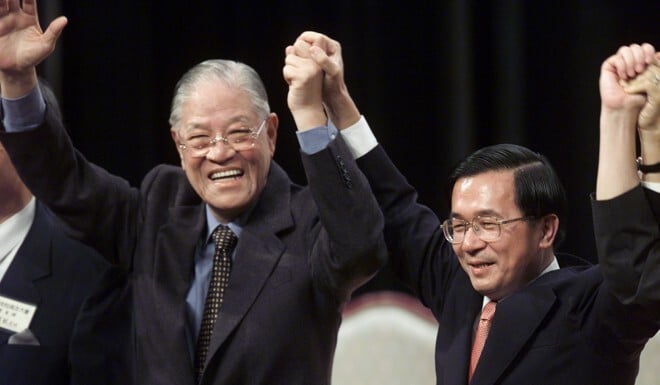
“Don’t think that because many Taiwanese came from China, Taiwan is a part of China,” said Lee in discussion of the nature of cross-strait ties in October 2013. “The Dutch occupied Taiwan for 200 years, but they don’t claim it as a part of Holland.”
Wang said assessing Lee’s legacy was not easy because public opinion was divided. “For his supporters, he was known as ‘Mr Democracy’, who worked hard to promote political reforms and the localisation movement,” he said.
But his critics accused him of betraying the KMT, intensifying the island’s political divide, resulting in constant struggles between the Taiwan-centric and mainland-friendly camps, and obstructing political and economic progress.
Wang said Lee’s employment of so-called black gold politics which included the use of extensive factional networks, regardless of whether they were linked to local interest groups or underworld figures, in his pursuit of KMT election victories had ironically damaged the democratic reforms he had promoted.
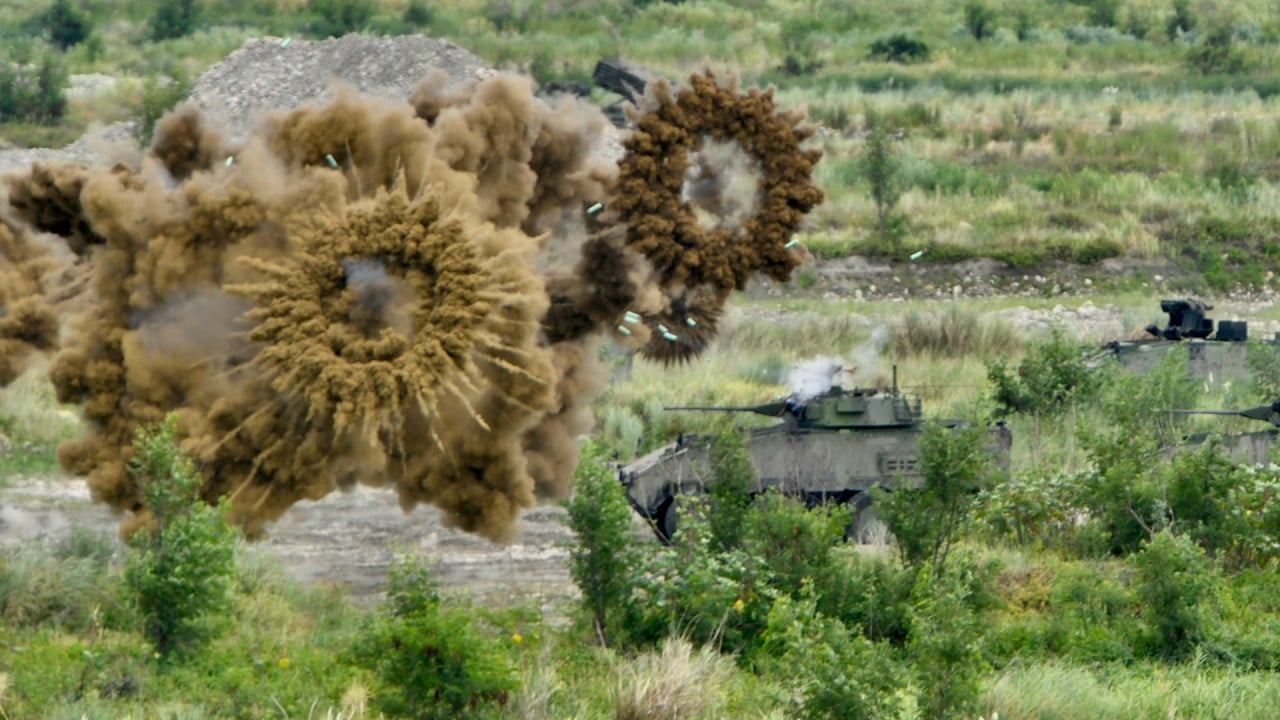
02:19
Taiwan military drill simulates coastal attack amid rising tensions with mainland China
“He pushed through the ‘southbound’ policy in 1993 because he foresaw the gradual rise of China and the need to cut Taiwan's economic reliance on the mainland,” Wang said.
Were it not for the Asian financial crisis of 1997 – which forced a great number of Taiwanese investors to retract their investments in Southeast Asia – the policy could have helped reduce the island's trade dependence on the mainland, he added.
“Lee also had a great influence on Tsai Ing-wen, who actually was his follower, dating back to the time in 1999 when she was responsible for the drafting of the special state-to-state theory, which irked the mainland.”
Wang said some of Tsai's policies – like the “new southbound” policy to engage Southeast Asia, India, New Zealand and Australia – had been borrowed from Lee.

